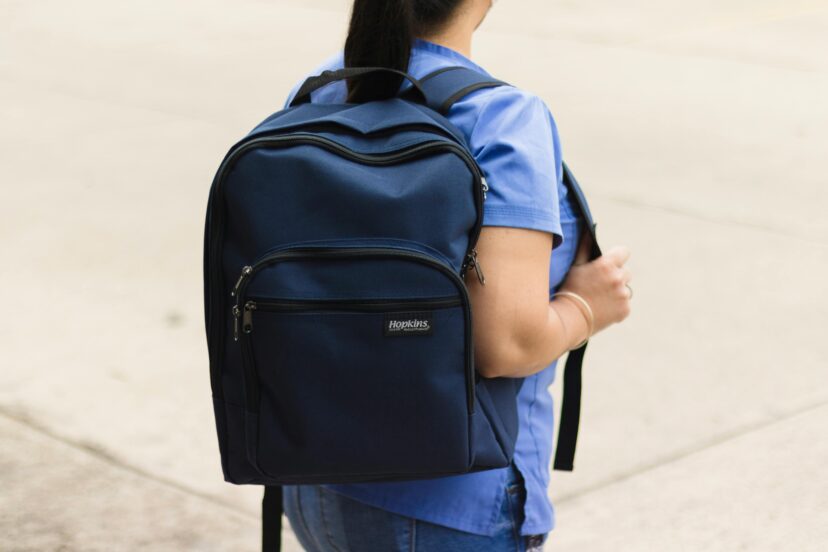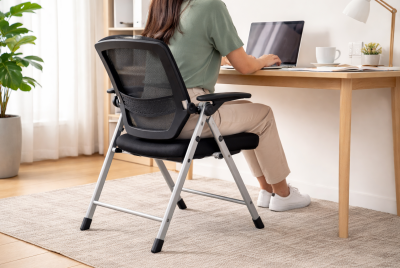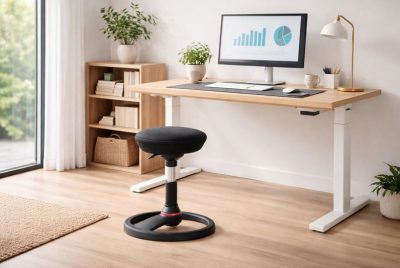5 Reasons Why an Ergonomic Backpack is Better for Your Back
We may earn a commission for purchases made using our links. Please see our disclosure to learn more.
Neck and back pain is serious, and you may be unintentionally making it worse if you are wearing a backpack every day. Your backpack might be your greatest ally or your biggest enemy, depending on your needs as a student, commuter, tourist, or outdoor enthusiast. The answer? An ergonomic backpack. Why is this important? Imagine carrying a poorly made bag around—it would be like holding a rock! However, the weight is evenly spread with an ergonomic backpack, which lessens strain and keeps your comfort. Let’s review five compelling reasons why an ergonomic backpack can significantly improve your back health.
1. Equal Weight Distribution Reduces Stress
Why is the distribution of weight important?
Imagine your body as a seesaw that is in balance. You might fall over if you put too much weight on one side, and the same is true for your back. An uneven load from a non-ergonomic backpack can result in pain, misalignment, and sore muscles.
How does an ergonomic backpack help?
- Padded straps and structured support ensure weight is evenly spread across your shoulders.
- Multiple compartments prevent a lopsided load by allowing better organization.
- Chest and waist straps help stabilize your bag, so your shoulders don’t bear all the weight.
What happens if you ignore this?
You might develop chronic shoulder and back pain, making daily activities uncomfortable. Over time, poor posture can lead to long-term spinal issues.
2. Improved Posture and Spinal Alignment
Bad posture = Bad news
Ever notice how someone’s backpack is dragging them down, causing them to squat like a turtle? A poorly designed bag does just that, forcing you to bend forward to balance the weight, which puts stress on your back.
How does an ergonomic backpack improve posture?
- Adjustable shoulder straps ensure the bag sits correctly on your back.
- Contoured back panels align with your spine, supporting its natural curve.
- Lightweight materials prevent unnecessary downward pressure.
The long-term benefits?
Using an ergonomic backpack helps you maintain a straight, comfortable posture instead of slouching like a human question mark.

3. Reduces Shoulder and Neck Pain
Are you feeling the weight of the world on your shoulders?
A traditional backpack with thin, hard straps digs into your shoulders, creating pressure points that trigger pain and stiffness. Worse, it can lead to tension headaches from neck strain.
How does an ergonomic backpack solve this?
- Thick, cushioned shoulder straps reduce pressure and improve comfort.
- Chest and waist straps take the load off your shoulders.
- Proper weight balance ensures you’re not overburdening one side.
Bottom line?
Your shoulders and neck will thank you. No more sore, stiff muscles from carrying a heavy, poorly designed bag.
4. Encourages Proper Movement and Flexibility
Ever felt like your backpack is limiting your mobility?
Traditional backpacks can feel like carrying a rock on your back—heavy, stiff, and restrictive. You might even find yourself moving awkwardly to compensate for the weight, which can strain your joints.
How does an ergonomic backpack support movement?
- Flexible, breathable materials adapt to your body’s natural movements.
- Lightweight design makes carrying effortless.
- Adjustable features ensure a snug fit, preventing unnecessary swaying.
The result?
You can walk, bike, or run comfortably without feeling like your backpack is holding you hostage.
5. Prevents Long-Term Health Issues
Small issues today can become big problems tomorrow
Ignoring back strain can lead to serious spinal issues down the road, such as:
- Herniated discs from excessive pressure.
- Muscle imbalances that lead to chronic pain.
- Postural disorders that affect how you stand and walk.
How does an ergonomic backpack protect you?
By distributing weight evenly, supporting your posture, and reducing strain, an ergonomic backpack helps prevent injuries before they start.
Think of it as an investment in your future
Would you rather pay for physical therapy later, or invest in a backpack that keeps your back healthy today? The choice is easy.
The Science Behind Ergonomic Backpack Design
Scientific research confirms that an ergonomic backpack significantly reduces strain on the back and shoulders by optimizing weight distribution and improving posture. A study on backpack biomechanics found that features like shorter, stiffer shoulder straps and a higher load position enhance balance and decrease muscle fatigue. Additionally, research on backpack contact points and lower back pain suggests that improving contact points between the backpack and back can significantly delay discomfort and enhance spinal support. These findings highlight the importance of choosing an ergonomic backpack to protect against long-term back issues.
Best Ergonomic Backpacks for Ultimate Comfort and Support
If you’re ready to give your back the support it deserves, here are some highly recommended ergonomic backpacks that combine comfort, functionality, and durability:
Students and Daily Commuters:
- Samsonite Tectonic Lifestyle Crossfire – Padded straps, back support, and multiple compartments for organized carrying.
- Matein Travel Laptop Backpack – Ergonomic design with a USB charging port and breathable mesh padding.
Professionals and Office Use:
- Nomatic Backpack – Sleek, professional, and designed with weight distribution and back support in mind.
- Samsonite Xenon 3.0 Slim Backpack – Lightweight, durable, and built for work essentials.
Travelers and Digital Nomads:
- Osprey Farpoint 40 Travel Backpack – Ergonomic, well-padded straps with adjustable chest and waist belts.
- Nomatic Travel Pack – Minimalist, expandable, and designed for comfort on long journeys.
Each of these backpacks is designed to reduce strain, improve posture, and make carrying your essentials much more comfortable. No matter your lifestyle, investing in an ergonomic backpack will keep your back happy and pain-free!
Bonus Tips: Choosing the Right Ergonomic Backpack
Not all ergonomic backpacks are created equal. Here’s what to look for:
Adjustable straps – Allows for a customized fit.
Padded back support – Provides extra comfort.
Multiple compartments – Helps with weight distribution.
Breathable materials – Reduces sweating and discomfort.
Waist and chest straps – Adds stability and relieve shoulder stress.

Final Thoughts
Your backpack is more than just an accessory—it’s a daily companion that affects your health. Switching to an ergonomic backpack isn’t just about comfort; it’s about protecting your back for years to come. So, why settle for pain when you can have comfort, support, and long-term health benefits? Make the switch today, and feel the difference. If you want to improve your workstation, check out this article on ergonomic upgrades.
FAQs
1. Why is a backpack ergonomic?
An ergonomic backpack has padded straps, even weight distribution, and back support to reduce strain and improve posture.
2. Can an ergonomic backpack help with existing back pain?
Yes! A well-designed backpack reduces stress on your spine, allowing your back to heal while preventing further damage.
3. Are ergonomic backpacks only for students?
No, they’re for everyone! Whether you’re a professional, traveler, or outdoor enthusiast, an ergonomic backpack can help.
4. Do ergonomic backpacks work for heavy loads?
Absolutely. They distribute weight evenly, preventing the strain that traditional backpacks cause.
5. How do I adjust my ergonomic backpack for the best fit?
Tighten the shoulder, chest, and waist straps to keep the backpack close to your body and distribute the weight properly.




